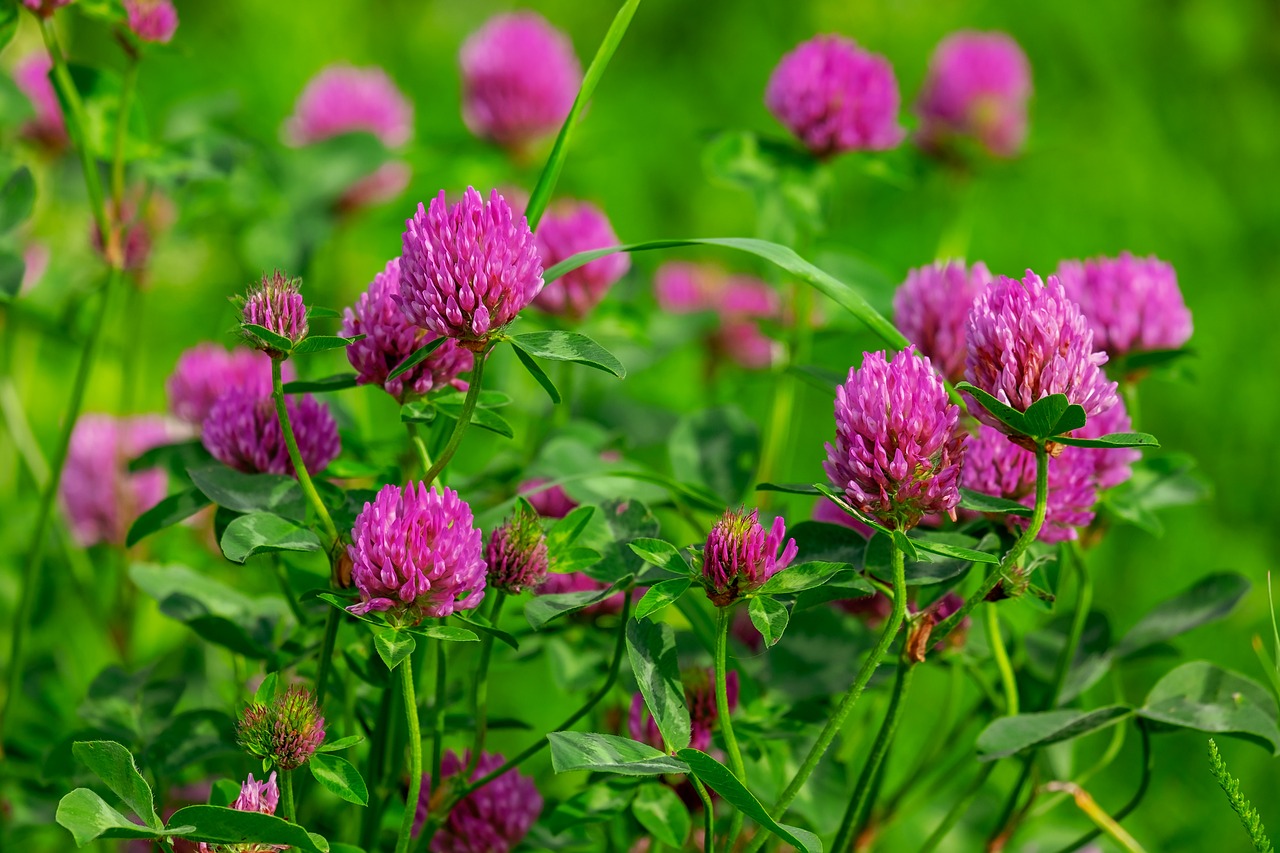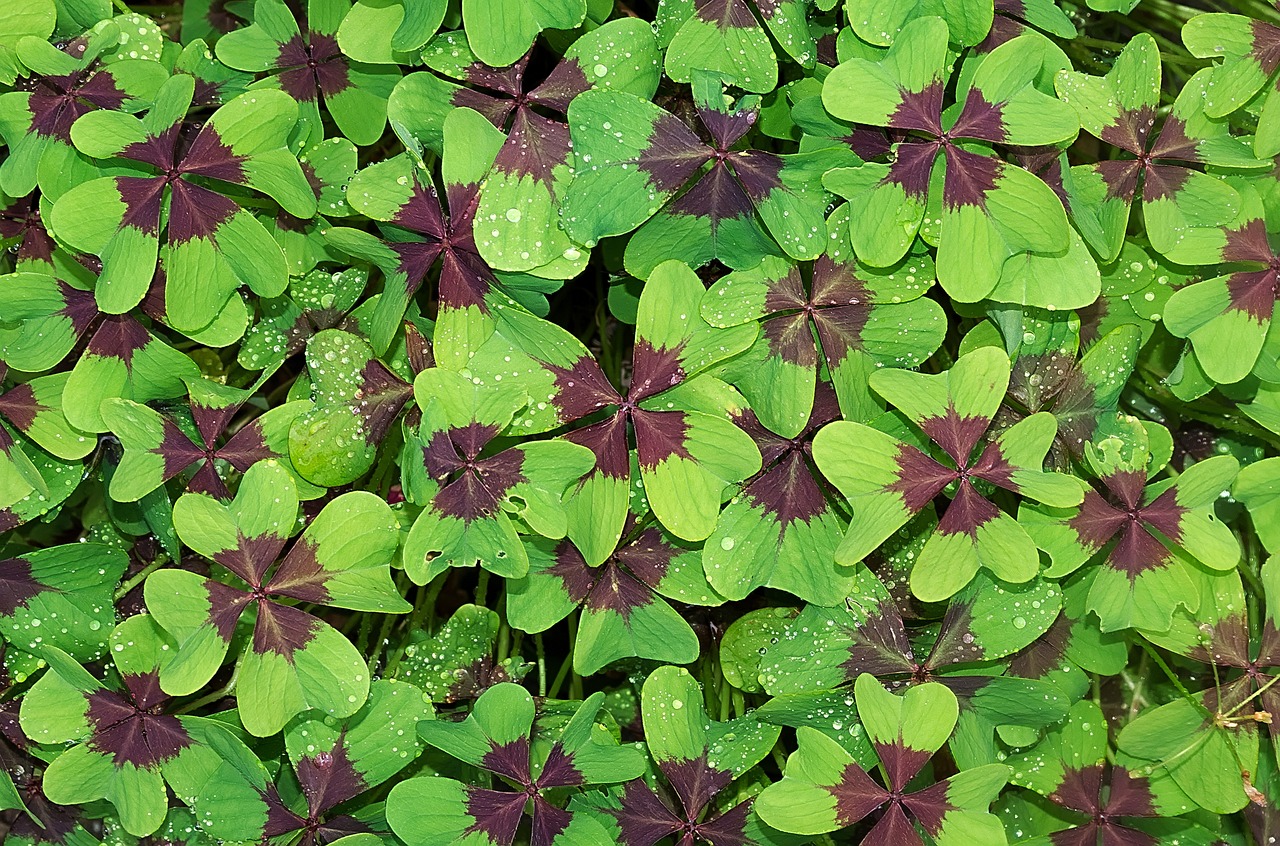“`html
The Enchanting World of Clovers: A Comprehensive Guide
Clovers are more than just lucky charms; they are fascinating plants with a rich history and diverse uses. In this post, we delve into the world of clovers, exploring their natural habitat, unique characteristics, symbolism, and provide guidance on how to cultivate them.
Understanding Clovers: Habitat, Characteristics, and Symbolism
Natural Habitat of Clovers
Clovers, belonging to the genus Trifolium, thrive in temperate regions across the globe. They are commonly found in meadows, pastures, and grassy fields. These resilient plants prefer well-drained soils and ample sunlight, although some species can tolerate partial shade.
Key Characteristics of Clovers
Clovers are herbaceous plants recognized by their trifoliate leaves, although some species exhibit more leaflets. The most iconic clover is the Trifolium repens, or white clover, known for its white, sometimes pink-tinged flowers. Clovers are nitrogen-fixers, enriching the soil by converting atmospheric nitrogen into a form usable by plants.
Symbolism and Cultural Significance
In various cultures, clovers symbolize luck and prosperity. The four-leaf clover, in particular, is a universal symbol of good fortune. In Celtic tradition, the three-leaf clover, or shamrock, is associated with St. Patrick, representing the Holy Trinity. This deep-rooted symbolism makes clovers a popular motif in art and folklore.

How to Grow and Care for Clovers
Choosing the Right Clover Variety
When deciding to grow clovers, it’s crucial to select the right variety for your climate and purpose. Common varieties include the white clover, red clover (Trifolium pratense), and crimson clover (Trifolium incarnatum), each with unique benefits and aesthetics.
Planting Clovers
Clovers can be grown from seeds, which are readily available at garden centers or online. The best time to sow clover seeds is in early spring or late summer. Prepare the soil by removing weeds and loosening it to ensure good drainage. Scatter the seeds evenly, and lightly rake them into the soil to ensure good contact.
Caring for Your Clover Plants
Clovers require minimal maintenance once established. Water them during dry spells, but avoid overwatering as they are susceptible to root rot. Fertilization is typically unnecessary due to their nitrogen-fixing ability. Regular mowing or trimming helps maintain their lush appearance and prevents them from overshadowing other plants.
Common Pests and Diseases
While clovers are generally hardy, they can occasionally face issues like clover mites and fungal diseases. Maintaining healthy soil and proper spacing between plants can mitigate these problems. In severe cases, natural pesticides or fungicides may be necessary.

Beyond the Basics: More About Clovers
The Environmental Benefits of Clovers
Clovers play a significant role in sustainable agriculture. Their nitrogen-fixing ability reduces the need for synthetic fertilizers, promoting healthier soil and reducing environmental impact. Additionally, they provide habitat and food for pollinators like bees, contributing to biodiversity.
Culinary and Medicinal Uses
Clovers are not only beneficial for the environment but also hold culinary and medicinal value. The flowers and leaves of some clover species are edible and can be used in salads or teas. Traditionally, clovers have been used in herbal medicine to treat ailments such as inflammation and respiratory issues.
Clovers in Landscaping
Due to their vibrant green foliage and attractive blooms, clovers make an excellent ground cover for lawns and gardens. They are often used in eco-friendly landscapes as they require less water and maintenance compared to traditional grass lawns.
Conclusion
Clovers are remarkable plants with much to offer both in their natural beauty and practical benefits. Whether you’re looking to enhance your garden, support local wildlife, or simply enjoy the charm of these storied plants, clovers are a worthwhile addition to any green space.
For more on sustainable gardening practices, visit our Sustainable Gardening page. To learn more about clovers in agriculture, check out this article on Agriculture.com.
“`
